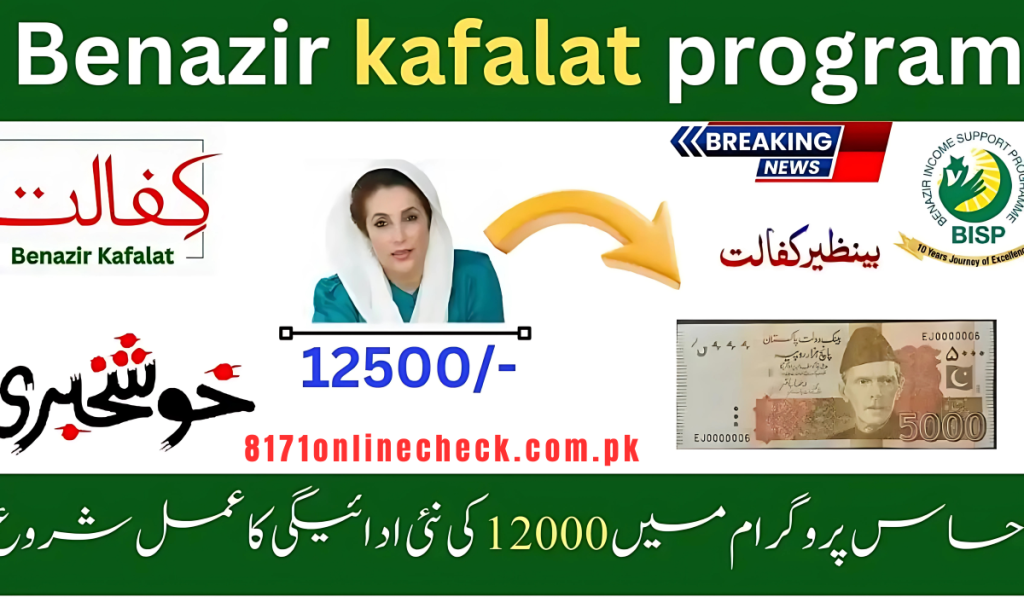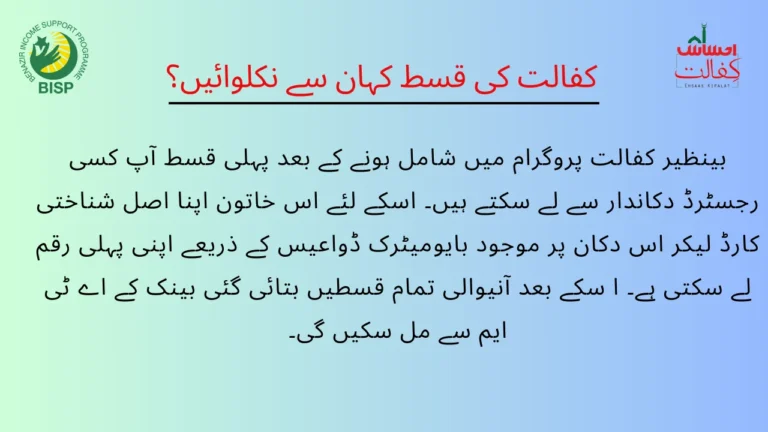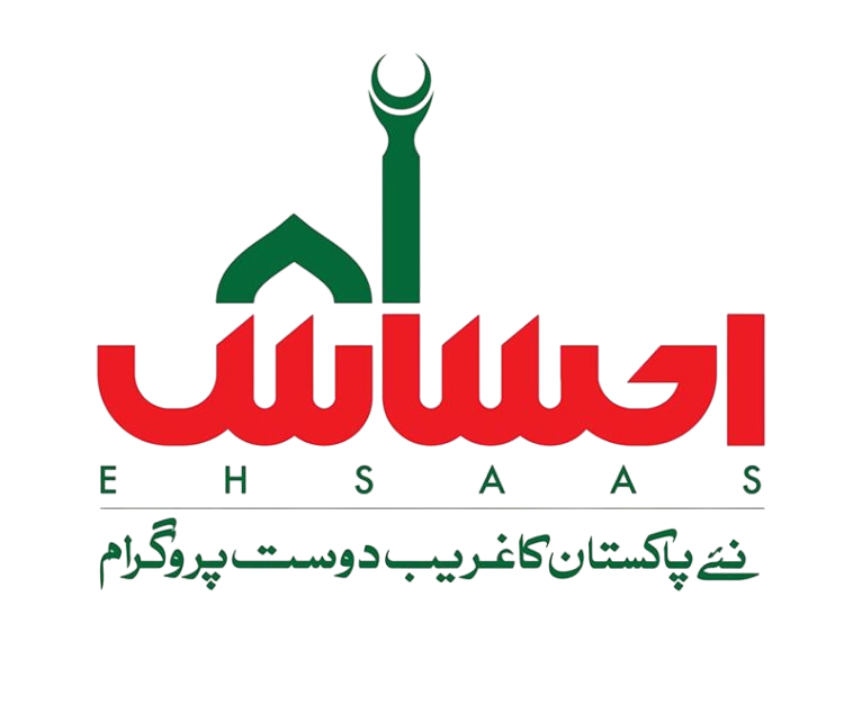Benazir Kafaalat Program July 2025 – Check Registration/Eligibility Online
The Benazir Kafaalat Program is Pakistan’s flagship cash-transfer safety net run by the Benazir Income Support Program (BISP). It was launched in 2008 and named after the late Prime Minister Benazir Bhutto; it provides unconditional cash assistance to millions of low-income families.
The program is part of the government’s broad poverty alleviation strategy and focuses on supporting especially deserving women and children.
Under BISP’s stewardship, the program has grown to be the largest single cash-transfer initiative in Pakistan’s history.
It has an approved FY2023–24 budget of roughly PKR 471 billion, with about PKR 361.5 billion for Benazir Kafaalat to cover some 9.3 million families.
The registered beneficiary households currently receive a quarterly stipend (recently raised to PKR 13,500) to help meet their basic needs and meet up with rising prices.
You can also check CM Punjab Khidmat Card Scheme.
Read also 8171 Ehsaas Program.

Objectives and Impact of the Benazir Kafaalat Program
Benazir Kafaalat program aims to quickly eliminate poverty and empower women through regular cash grants. In the short term, its goal is to protect deserving families, particularly women and children, from the negative effects of inflation, food price shocks and slow economic growth.
Over the long term, the program targets poverty reduction and women’s empowerment in line with Pakistan’s commitments to the United Nations Sustainable Development Goals.
By channelling funds directly to the female head of household, the scheme seeks to boost household welfare, improve nutrition and education and give women greater financial inclusion.
Since it started, Benazir Kafaalat program has reached tens of millions of poor families. For example, under a recent government tenure, the program expanded coverage from about 7.6 million to 9 million families.
This expansion was accompanied by sizable stipend increases: a 25% boost raised the quarterly grant from PKR 7,000 to PKR 8,750 per family by 2022, and further increases brought the amount to PKR 10,500 from 2023 and PKR 13,500 from January 2025.
These enhancements provided “much-needed relief” to poor families facing inflationary pressures. Early evidence suggests these cash transfers have significantly aided beneficiary households which has improved their living standards, and made them able to afford food and healthcare.
Studies note that such large-scale UCT (Unconditional Cash Transfer) programs can empower women and boost school attendance.
Check also CM Punjab Asaan Karobar Card now.
Benazir Kafaalat Program Eligibility and Beneficiaries
Benazir Kafaalat Program primarily targets the poorest households as registered in the National Socio-Economic Registry (NSER). The cash grants are typically paid to women who are the female heads of household.
This includes widows, divorced or separated women, and sometimes poor married women in households. In recent years, eligibility was broadened to include transgender persons and the program recognizes their rights.
Pregnant or lactating women and those with disabled family members have also been prioritized under related BISP initiatives.
Overall, current rules focus on “eligible women” in poor and extreme-poverty households. (Critics have noted that traditionally, the program did not directly cover single, unmarried women unless they were heads of household.
In total, around 9 to 9.4 million families are enrolled in Benazir Kafaalat Program.

Registration and Enrollment
To benefit from Benazir Kafaalat Program, eligible households must register through the BISP system. Today, the government also provides a helpline and digital checks.
For example, beneficiaries receive SMS updates (only from the 8171 number) about payments, and they can call the toll-free BISP helpline (0800-26477) for any queries. Those who are not yet registered can often visit a BISP Tehsil Office or a Benazir Registration Center for NSER verification.
If a family’s CNIC shows “no record found” in the 8171 portal, BISP allows visiting a registration desk for a survey and inclusion. Overall, women in poor households are encouraged to verify their status by contacting BISP (online, by phone, or in person) so that they receive cash transfers.
Cash Transfer and Payment Process
Benazir Kafaalat Program payments are made every quarter and can be collected in cash from designated banks or payment campsites. The typical payment schedule covers January–March, April–June, July–September and October–December periods each year.
BISP sends confirmation SMS messages (from shortcode 8171) when a payment is due, and beneficiary women can then go to a nearby bank or camp for biometric verification of their CNIC and PIN to receive funds.
The stipend has risen over time: it was PKR 8,500 per quarter (in 2021–22), then PKR 10,500 (for 2023–24), and from January 2025 was increased to PKR 13,500. During each round, about 9 million registered families nationwide collect their payments.
For example, in March 2024, BISP reported having disbursed the January–March tranche of PKR 10,500 to roughly 4.5 million beneficiaries (about half of all recipients) and continued payments across all provinces.
Coverage and Impact
The Benazir Kafaalat Program has a truly national footprint. Payments are simultaneously distributed in all regions (Punjab, Sindh, Khyber Pakhtunkhwa, Balochistan, as well as Azad Kashmir and Gilgit-Baltistan) so that no area is left out.
By the end of FY2023, roughly 9.3–9.4 million families were regularly receiving stipends. In the current fiscal year (2024–25), the government aims to raise the coverage further, targeting 10 million families by next year.
This massive reach has made Benazir Kafaalat a central tool against poverty. During recent floods and crises, for example, millions of flood-affected households also received special cash grants through BISP channels.
Conclusion
Benazir Kafaalat Program is a cornerstone of Pakistan’s social safety net. It provides cash relief to the country’s poorest families and focuses on women’s welfare. The program has given immediate support to millions and helped lift many out of severe poverty.
By targeting women, it also contributes to gender empowerment and community development. The program continues to evolve, from improving registration systems to increasing stipends and in response to economic challenges. As of 2025, it remains a lifeline for over nine million families.
